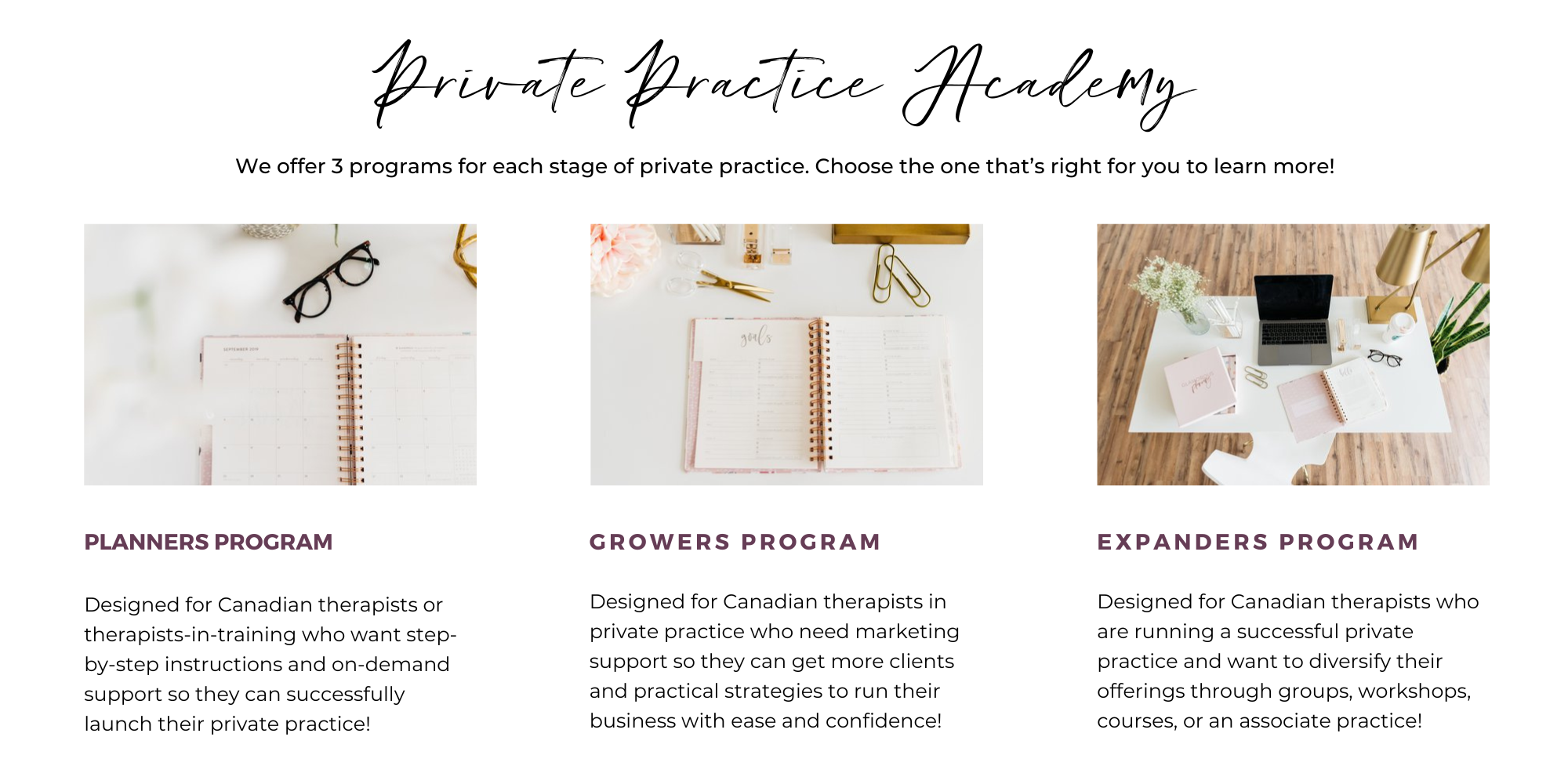Identifying Your Niche in Private Practice
Being too broad in your marketing efforts by trying to speak to everyone is a problem that many private practitioners face. By identifying your niche and tailoring your messaging to reach a specific audience, you are more likely to develop strong connections and increase brand awareness with your ideal client.
One important thing to keep in mind when developing your niche is to remember that it is possible to be as successful as other private practitioners who may be offering their services to a similar ideal client. Every person who operates a private practice has a unique selling feature that makes them a better fit for certain clients. It is this unique aspect that will allow you to develop a clearly defined niche, positioning you as the right practitioner for clients with needs that suit your offerings and experience.
When developing a strong marketing strategy, it is important to understand that choosing a niche makes describing what you do to prospective clients easier. Having a clearly identified target client allows you to have clear messaging in your copywriting and in your content to ensure that you speak to that person specifically.
This may look like including specific keywords in your website or social media content that clearly depicts the type of client you work with (e.g. ‘adult women experiencing anxiety or postpartum depression’). By having a specific niche you are able to communicate what you do more effectively to your ideal client.
Having a clearly defined niche also allows you to utilize specific keywords in your overall SEO strategy. This assists with achieving higher search rankings based on your target client’s search patterns. It is important to consider different aspects of your niche when optimizing your website for search engine rankings.
Be sure to include keywords relevant to your location (‘Toronto therapist’ ‘Vancouver family counsellor’), or words like ‘virtual therapist’ or ‘online cognitive behaviour therapy’ if you offer online counselling options. The goal here is to understand the audience in your niche and use words tailored to your ideal client and what they are likely searching for on Google.
Your niche can be based on several factors including:
Location - where you operate your practice (a specific city or area, online)
The clients you are targeting - their ages, interest, hobbies, goals, etc.
The price point at which you offer your services
How you sell your service - if you offer in-person counselling only, your niche would be clearly defined by people who have the ability to visit your office so it would not make sense to target potential clients outside of that demographic
Once you have settled on a niche, it is important to do some research to determine how to best position your unique selling feature. Take a moment to analyze your competitors. For example, is there an overly saturated market that is targeting new moms? How can you use your unique selling feature to stand out amongst your competitors? Perhaps you also have children so you can exhibit both empathy and expertise to your ideal client.
Be sure to also consider what your competitors are missing that your ideal client may be looking for. Carrying on with the target client of new moms, perhaps having a flexible schedule to accommodate clients outside of typical 9-to-5 hours would make your services more appealing.
By having a clear niche you will be able to approach your practice with a growth mindset. This means that you will be making decisions that reflect the needs of your ideal client that also represent your long-term goals.
With a well-defined niche, you'll be able to grow at a comfortable pace. Sometimes it can be easy to bring on any client when you haven't clearly defined your niche. Your client caseload can become hard to manage very quickly, and filled with people that may not fall within your mission or values.
Being able to reflect on your niche in your marketing will ensure that you speak to your ideal customer. By doing so, you are creating a strong relationship and making you their therapist of choice when they start to look into mental health support.
Because people gravitate to those that are similar to them your clients may also refer people in their social circle to you. This will allow you to reach similar clients that fit your niche, effectively build your caseload with the right clients.
Finally, it is important to consider that a well-defined niche is just one component of a successful practice. Consider investing in developing a strong social media presence, building a website with effective search engine optimization, and having a client experience that sets your practice apart.
Looking to define your niche and gain clarity on your ideal client? Check out the Private Practice Readiness Workbook.

